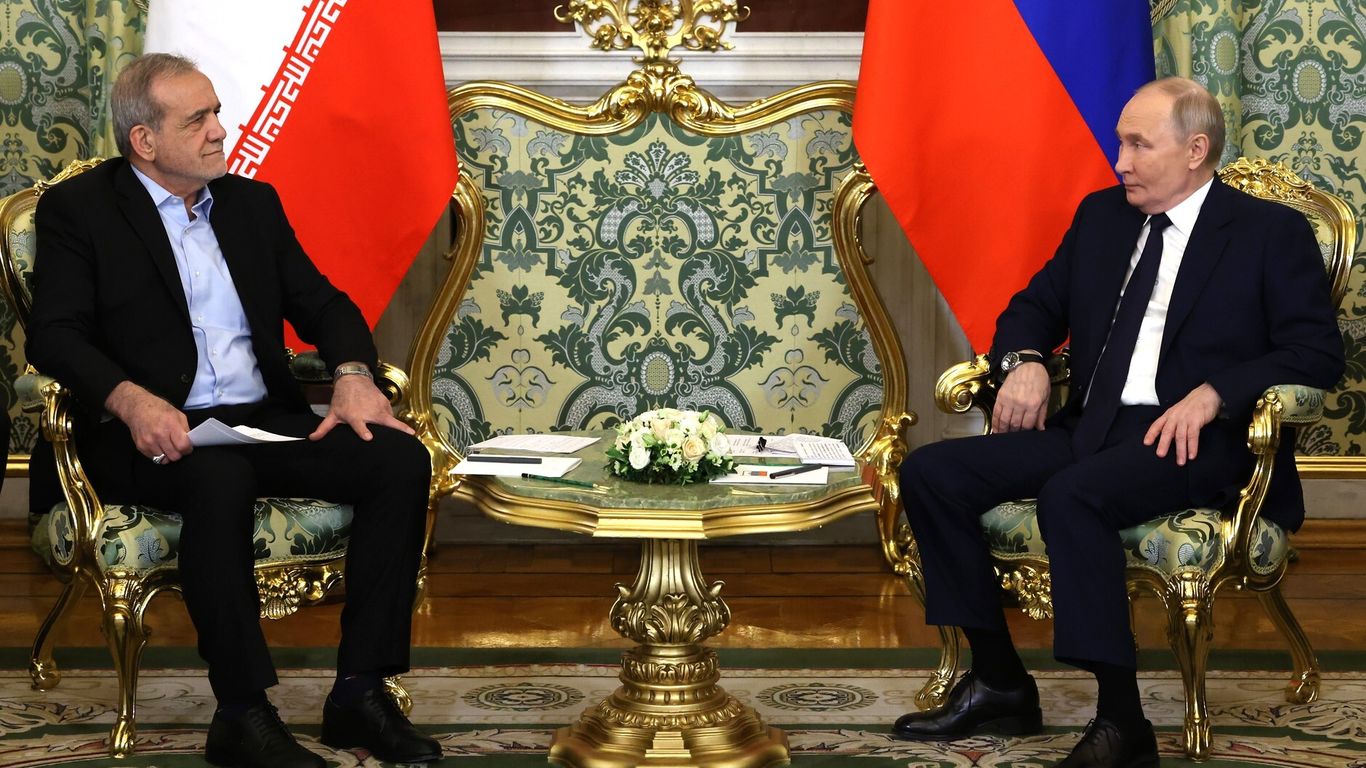Russian President Vladimir Putin has urged Iran to accept a nuclear deal that prohibits the enrichment of uranium, according to sources familiar with recent discussions. This position was communicated to both Iranian officials and U.S. President Donald Trump during conversations held in the past week, highlighting a shift in Russia’s diplomatic stance towards Iran amid increased tensions in the region.
In the context of a deteriorating geopolitical landscape, particularly following the recent conflict involving Israel and Iran, Putin has taken a firmer approach. While Russia has historically supported Iran’s right to enrich uranium, the current situation has prompted Moscow to advocate for a “zero enrichment” policy. This recommendation appears to be part of a broader strategy to facilitate negotiations between Iran and the United States, as well as to reassure regional allies.
Encouraging a Shift in Negotiations
Moscow’s encouragement for Iran to agree to a nuclear deal with “zero enrichment” has reportedly been communicated multiple times in recent weeks. According to three European officials and one official from Israel, the Russian government has briefed Israeli authorities on Putin’s stance on this matter. “We know that this is what Putin told the Iranians,” a senior Israeli official stated, reflecting the gravity of the situation.
The backdrop of this diplomatic initiative includes recent military actions that have significantly damaged Iranian nuclear facilities. Although U.S. and Israeli strikes inflicted serious harm, it remains unclear whether all of Iran’s highly enriched uranium and centrifuge capabilities were completely neutralized. As negotiations progress, the demand for Iran to cease uranium enrichment will likely be a central issue, reflecting Trump’s desire for a new nuclear framework.
Geopolitical Implications and Iran’s Response
Despite the pressure from Russia and the United States, Iran has maintained its position of requiring the ability to enrich uranium in any potential agreement. This resistance may hinder the prospect of reaching a consensus. A European official with direct knowledge of the discussions noted, “The Iranians said they won’t consider it,” indicating a significant friction point in the negotiations.
Putin’s advocacy for a “zero enrichment” deal is particularly striking given the extensive military and logistical support Iran has provided to Russia during its ongoing conflict in Ukraine. Iranian contributions have included supplying drones and missiles, leading to expectations of reciprocal support from Russia that have not materialized beyond public endorsements.
The Kremlin and the White House have not responded to requests for comments regarding these developments, while the Iranian mission to the United Nations has also declined to provide input.
Analysts are closely monitoring the situation as Steve Witkoff, the White House envoy, engages with Iranian Foreign Minister Abbas Araghchi about the possibility of resuming nuclear negotiations. Although there were plans to meet in Oslo in the coming days, sources indicate that both parties have cooled on this idea and are exploring alternative venues for discussions.
As negotiations unfold, the potential for a deal that includes the removal of Iran’s highly enriched uranium remains a focal point. Should an agreement be reached, Russia has expressed willingness to supply Iran with uranium enriched to 3.67% for nuclear power, alongside small quantities of 20% enriched uranium for research purposes.
The international community continues to watch these developments closely, as they hold significant implications for regional security and the future of nuclear diplomacy in the Middle East.
